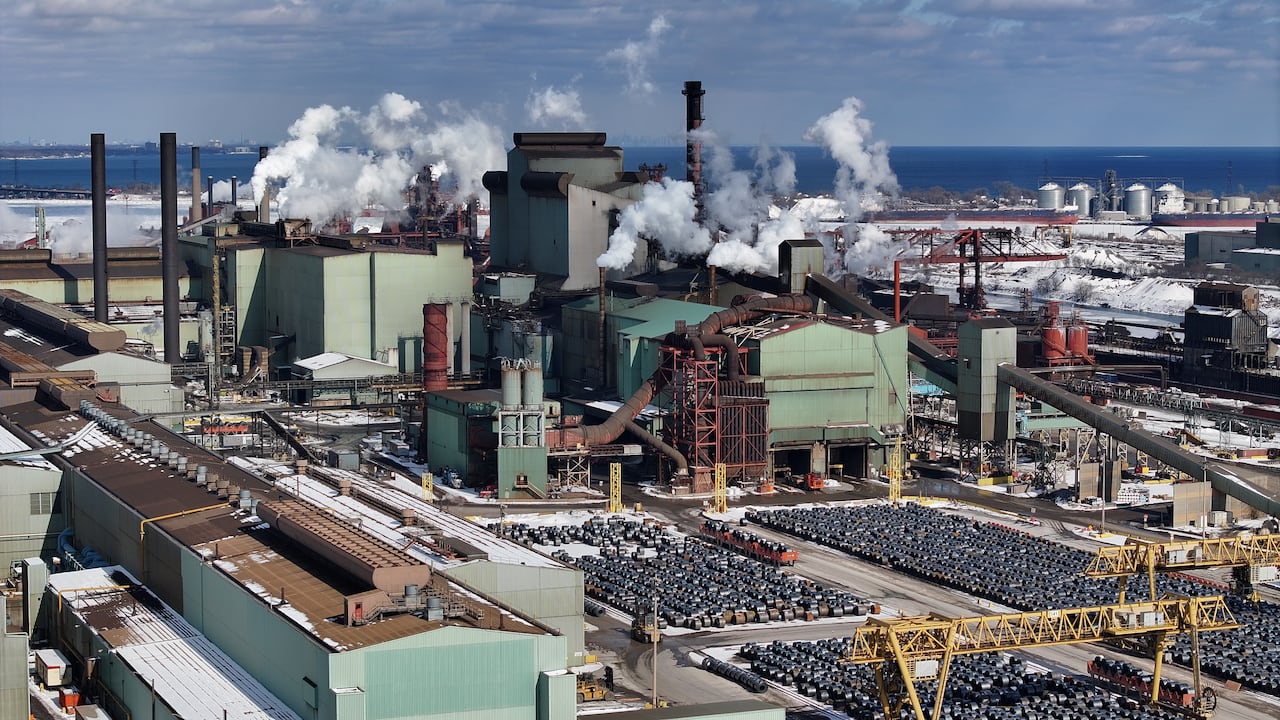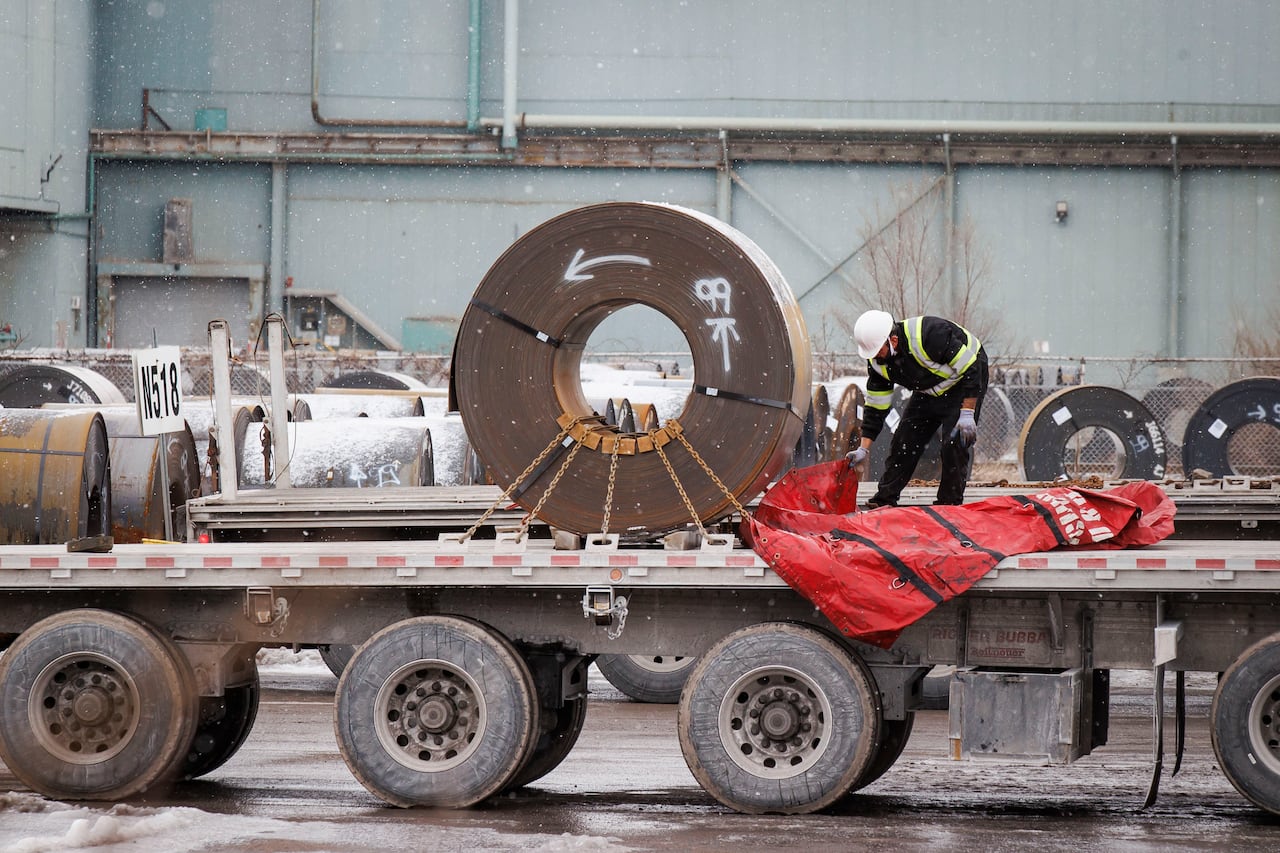Listen to this article
Estimated 4 minutes
The audio version of this article is generated by text-to-speech, a technology based on artificial intelligence.
With ArcelorMittal Dofasco stalling on its green steel plans and releasing emissions above Ontario’s air-quality regulations, Hamilton resident Jochen Bezner says Canada’s largest steelmaker needs to be held accountable.
Bezner and another, unnamed resident have formally requested that the Ministry of the Environment, Climate and Parks (MECP) investigate Dofasco, alleging it’s “emitting dangerous pollutants” at levels far above Ontario’s regulatory standards.
“We don’t want to shut them down,” Bezner told CBC Hamilton. “We just want them to be responsible.”
Bezner is a longtime citizen member of Dofasco’s community liaison committee. The investigation request was filed by Ecojustice — an environmental law charity — and a Hamilton lawyer.
The city is already home to a high concentration of heavy industries and air pollutants known to cause cancer — in particular, benzene and benzo[a]pyrene, said Bezner. That makes the stakes higher.
“We don’t need to add more than necessary,” he said.
In a news release earlier this week, Ecojustice said Dofasco’s plant is surrounded by neighbourhoods where about 82,000 people live. They experience among the highest levels of cancer-causing contaminants — benzene and benzo[a]pyrene — in Ontario, it added.
Dofasco operating in ‘grey zone,’ resident says
Dofasco used to operate under exemptions — known as site-specific standards — that allowed it to emit more of these contaminants than the province typically allows for other types of industries. But MECP still required the company to reduce its emissions each year by upgrading equipment and technology, according to Bezner’s request.
In June 2023, Dofasco’s exemptions expired, and it didn’t apply for new ones. That process would have required an open house and public commenting period, said Bezner.

MECP also didn’t intervene, it told CBC last year, because it was working on a new “technical standard” that would apply to the entire steel industry. It has yet to be finalized.
That means Dofasco is now operating in a “grey zone” that could be considered “non-compliance,” Bezner said.
Until a new exemption or industry standard is developed, it should be adhering to the province’s general air regulations, he said.
“Ontario has the power to use existing air-quality standards to ensure that Dofasco plays by the same rules as everyone else and ratchets up its efforts to reduce emissions,” said Ecojustice lawyer Ian Miron in the news release.
“It’s time for the province to take the kid gloves off and hold Dofasco accountable for putting communities at risk.”

According to its 2023 emissions report filed with MECP and obtained by Ecojustice through a freedom-of-information (FOI) request, it emitted significantly more contaminants than allowed under the province’s Environmental Protection Act. These include:
- Benzo[a]pyrene at 930 times higher.
- Benzene at 10.8 times higher.
- Sulfur dioxide at 3.3 times higher.
- Manganese and compounds at 2.7 times higher.
CBC Hamilton has filed an FOI request for Dofasco’s 2022 emissions report. The company is currently fighting to keep it secret through the Information and Privacy Commissioner of Ontario.
Where does decarbonization project stand?
Company spokesperson Marie Verdun told CBC that Dofasco is “committed to compliance” of regulations municipally, provincially and federally, and directed questions about site-specific standards to MECP.
MECP did not provide a comment before publication, but is required to respond to the investigation request in the next few months.
Another issue at play is Dofasco’s apparent lack of progress in following through on its pledge to decarbonize its steel plant by 2028, which could greatly reduce air pollution in the process. It has missed major milestones like demolishing its coke plant, despite community and government support.
“What I’m worried about is the company will basically sit on the low and just watch everybody else,” Bezner said. “If they have a long-term vision to stay in Canada, to stay in Hamilton, then this investment should be no problem.”
If Dofasco faced stringent regulations, it might encourage the company to act, Bezner hopes.
At a community meeting on Oct. 21, Dofasco representatives acknowledged the decarbonization project will “determine the future of our company,” but had no major updates to share as it continues to face high U.S. tariffs, said Verdun.
“We are proceeding with extreme caution for all expenditures in the current tariff environment, which poses a significant threat to the steel industry in Canada,” the company said.







